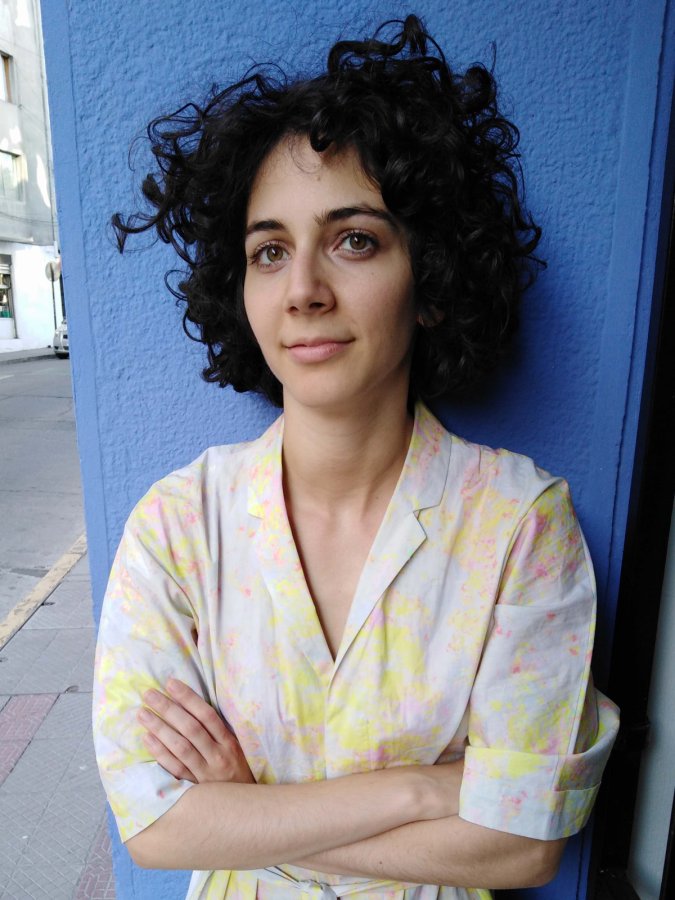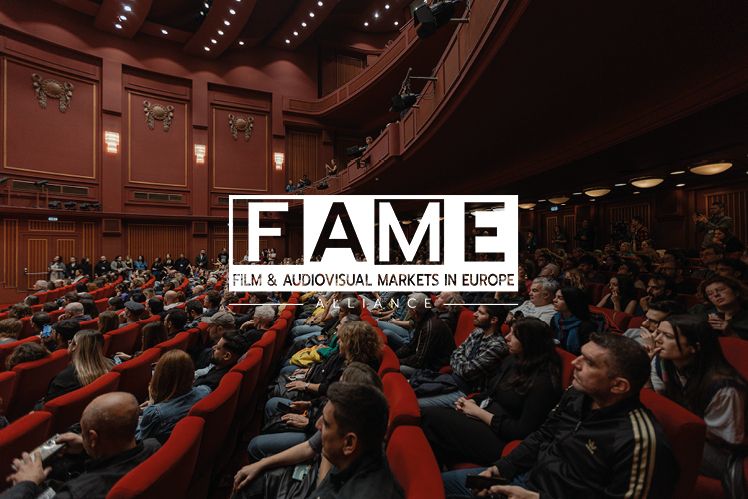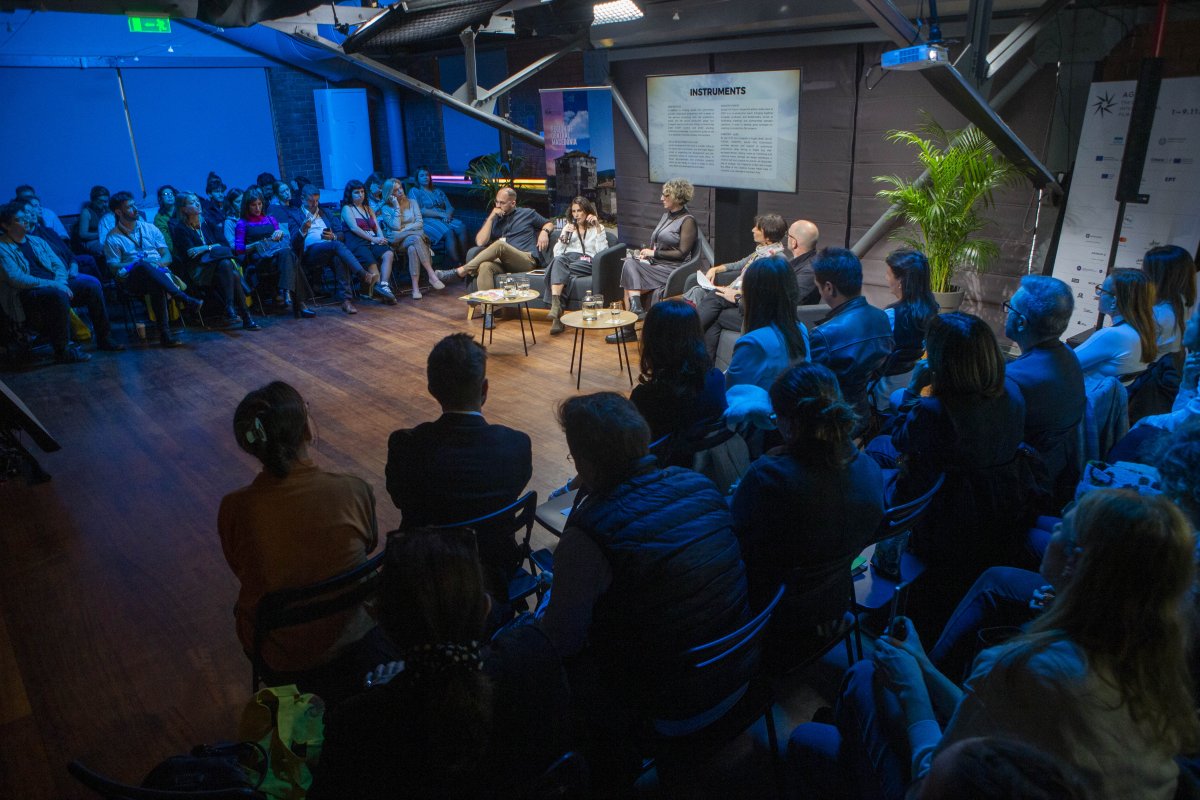The first to speak was TIFF’s director Orestis Andreadakis, who thanked Jean-Marc Barr for attending, saying that the screening of these two particular films is an honor and a great joy for the Festival, and for himself personally. Consequently, TIFF’s head of programming and moderator of the press conference Yorgos Krassakopoulos asked Barr about his participation in these two films. Starting from Dolphin Man, Barr stressed the ease with which he accepted Lefteris Haritos’ invitation to take part in the documentary: «Thanks to the huge box-office success of The Big Blue I was able to make my own choices as to the path I would follow in cinema, but at the same time it kind of overshadowed Mayol’s real persona. For this reason, it is a great joy for me to participate in a project that throws once more the spotlight on this great man”. As for the film Grain, Barr mentioned that, in his opinion, the director Semih Kaplanoğlu chose him to play the main character because he represents a pluralistic and multicultural cinema, which is mainly European and surpasses the strict national boundaries. “Starring in films by auteurs such as Besson and Trier, I became part of a cinema that acts as an alternative to Hollywood’s omnipotence. In a sense, Grain is my first ‘oriental’ European film», he added.
Consequently, Barr talked about the personality of Jacques Mayol, whom he basically played in The Big Blue, stressing that he is a man in total contact with his spiritual world, and has made the most of his life, paying the price for his choices. “At a time when the seas and the oceans were unchartered territories, Mayol, such as Jean-Jacques Cousteau, as other superheroes, dared to explore and bring to light secret and invisible worlds. At the same time, though, Mayol did not hesitate to sacrifice things for the sake of this adventure. I would compare him to a cowboy or a samurai, who had the courage to retire when time came”, he mentioned.
Consequently, Barr talked about his job as a film director and how his perception has changed as to the actor’s role after the six films he has directed. Noting that he considers the actor’s work much simpler than the film director’s or the producer’s, underlined how deliberating and important this change or roles has been for him. “Suddenly, you cease to be afraid and you start debunking situations and procedures that used to seem too hard. With my partner Pascal Arnold we made three films in three years, with a video camera in hand. The first one followed Dogme 95, while for the next two we traveled USA and India, respectively. We had the enthusiasm and euphoria of Mack Sennett’s heroes (he was widely known as the “King of Comedy” and is considered the pioneer of slapstick comedy)”, Barr concluded.
In the course of the press conference, Lars von Trier was inevitably mentioned. The Danish director and Barr are close friends, and the actor has participated in seven of his films. “Lars, such as me, is a genuine child of the 20th century, and not of the era in which we live. He is influenced by Fassbinder, Tarkovsky, Dreyer, and stays loyal to a very exciting cinematic vision. I love his desire to provoke and stimulate passions. My enthusiasm in view of Nymphomaniac is only comparable to the feelings I had in a younger age, before watching a film by Kubrick or Scorsese”, Barr said. Consequently, after making clear that he accepts almost mechanically any cooperation proposal by von Trier, he made a mini review of his career, noting that he had the privilege to follow his own choices, which did not yield much money, but made him richer in experiences and feelings. “The audience loves me for the right reasons and when I stand in front of the camera I become partaker of a message of honesty and truth. I feel privileged for having this opportunity, which many colleagues of mine are deprived of, having chosen simply to get rich. In any case, I was raised in a milieu and in a way that make me oppose to any exercise of power and authority”, he said.
Consequently, asked how much a film such as The Big Blue could move young people today, Barr expressed strong doubts, since this film is dominated by such an intense feeling of innocence. “The Big Blue has an epic dimension, a kind of Lawrence of Arabia at sea, and my character is not masculine enough, at least by today’s standards. I have the feeling that this innocence is dying off nowadays, perhaps because it gives you the power to express your opinion and judgment. Today, when you express a strong opinion and denounce what is wrong, you always risk to be cast out of the spotlight”, Barr said. Delving more deeply, he said that cinema influenced strongly the societies, both individually and collectively, in the course of the 20th century, providing models of life and behavior. He added that he considers sine qua non the return to the 20th century cinematic legacy, as a means of safeguarding our humanity and exploiting all that was handed down to us from the past. “Cinema can still act as a cultural channel connecting all humanity, as a source of universal consciousness. Even if today’s movie theaters are overwhelmed by films that use kids as consumers and reproduce an embryonic stimulus, with a barrage of lights and images, I still believe in cinema and the importance of being an actor. Internet is a black hole that absorbs everything, but it is also an inexhaustible source of potential, which we must take advantage of in a beneficial way”, he said.
The press conference ended with Barr replying to a question on the differences between American and French film production. He first explained that, though half French (born in Germany to American father and French mother), and a native French speaker, he does not consider himself French, insisting once more on his European identity. “The French suffer, if I may say so, from a complex of imaginary inferiority. In California, where I was raised, this inferiority complex is even stronger. Therefore, both my roots take themselves too seriously, and this is something that I cannot accept. Just think that, instead of starring in Indochina by Régis Wargnier, I chose Trier’s Europa. Instead of participating in Queen Margot by Patrice Chéreau, I chose the film adaptation of Camus’ book The Plague, by the Argentine director Luis Puenzo. I honestly tell you that I am totally off the French system of film production, which, though undoubtedly friendly to the directors, lacks the strength to self-criticism and real challenge, submitting to particular norms of consensus and compromise”, Barr concluded.















